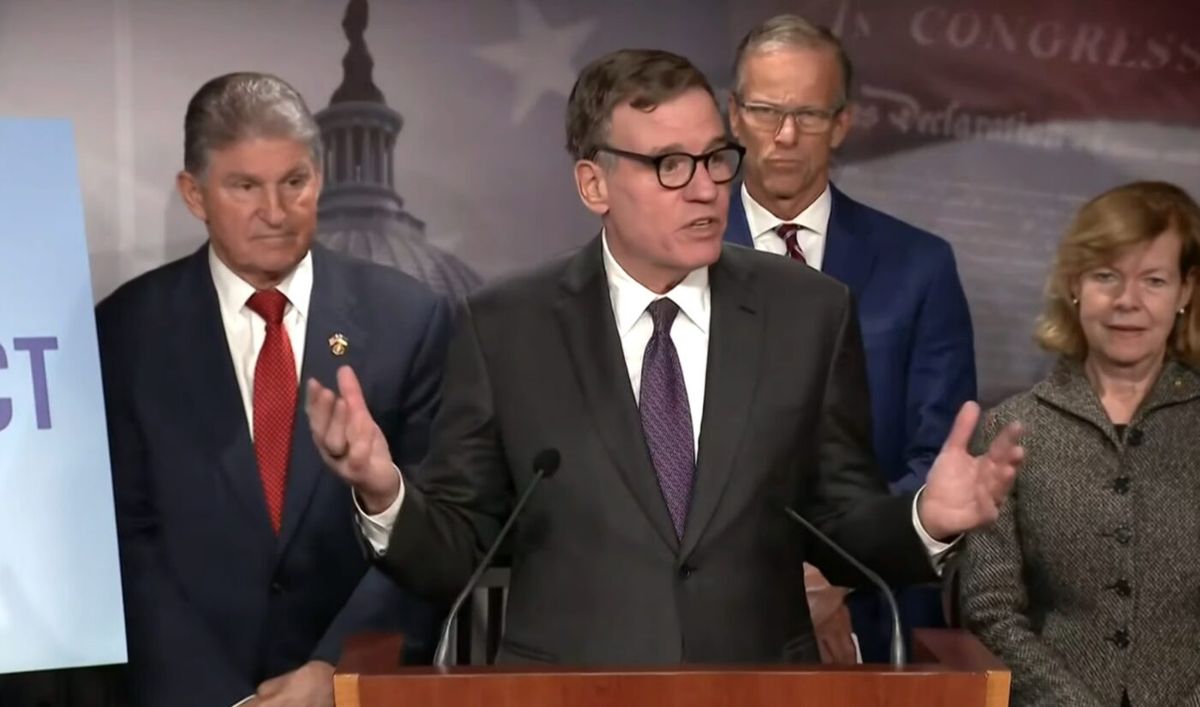RESTRICT Act: A Sweeping National Security 'TikTok Ban' Bill Includes $250K Fine If You Access A 'Banned' Site or Service
The RESTRICT Act is spearheaded by Sen. Mark R. Warner and Sen. John Thune.

- The RESTRICT Act has been garnering bipartisan momentum in the Senate, as well as backing from the Biden administration, as a workable solution to address the emergent risk posed by foreign information communications and technology (ICT) products and services to national security.
- The legislation calls on the secretary of commerce to "take action to identify, deter, disrupt, prevent, prohibit, investigate, or otherwise mitigate" dealings involving U.S. persons and technology from countries believed to pose a risk to national security or organizations under their control.
- The bill identifies six foreign adversaries at present: China, Cuba, Iran, North Korea, Russia and Venezuela.
- A foreign government or regime is designated as a “foreign adversary” if the secretary finds that it “is engaged in a long-term pattern or serious instances of conduct significantly adverse to the national security of the United States or security and safety of United States persons.”
- "The term ‘‘transaction’’ means any acquisition, importation, transfer, installation, dealing in, or use of any information and communications technology product or service, including ongoing activities such as managed services, data transmission, software updates, repairs, or the provision of data hosting services, or a class of such transactions."
- The RESTRICT Act authorizes US government agencies to block technology deemed an "undue or unacceptable risk" to national security.
- That technology includes "apps already on our phones, important parts of internet infrastructure, and software that underpins critical infrastructure." If they have access to "sensitive personal data" of more than 1 million people in the US, they're covered by this bill.
- The new bill also covers emerging technologies, including artificial intelligence, quantum computing, and communications, biotechnology and e-commerce.
- "The Attorney General may bring an action in an appropriate district court of the United States for appropriate relief, including declaratory and injunctive, or divestment relief, against any person who violates this Act or any regulation, order, direction, mitigation measure, prohibition, or other authorization or directive issued under this Act."
- The U.S. Department of Justice presumably will be a key law enforcement partner for the secretary of commerce.
- The RESTRICT Act outlines unlawful acts that can result in civil and/or criminal penalties. Those unlawful acts include both direct violations of “any regulation, order, direction, mitigation measure, prohibition, or other authorization or directive issued” under it and inchoate offenses such as attempt and conspiracy.
- As drafted, a criminal violation will require specific intent — i.e., proof that an unlawful act was committed “willfully.” Civil violations can result in fines up to $250,000 or twice the amount of the transaction that is the basis of the violation, whichever is greater.
- Criminal penalties can result in fines up to $1 million and/or imprisonment up to 20 years.
- Any individuals and businesses that are doing business with providers of ICT products or services owned or controlled by foreign companies should track the progress of this proposed legislation through Congress.




